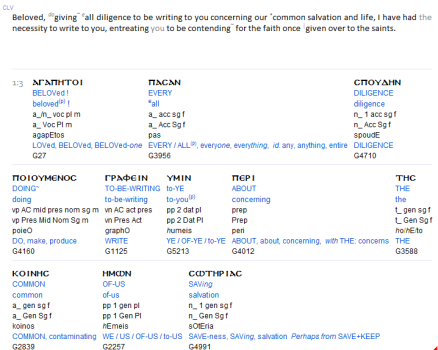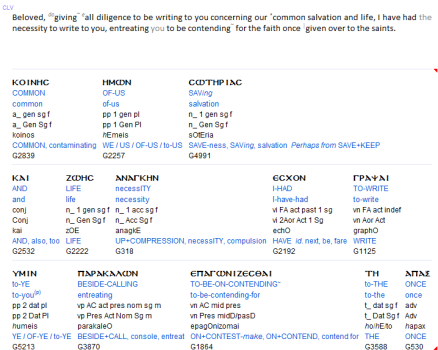How much effort should be expended in proclaiming the gospel to that creation you have opted for in Romans 8? How much time have you spent preaching to the rocks, trees, streams, sun, moon and stars?
I reject your foolish argument-did I say we should preach the gospel to the trees, moon and stars? And where do lost humanity yearn since the don't have the first fruits of the Ruach HaKodesh?! Are you a Universalist?
The statement you've provided reflects a common interpretation, but it involves a misunderstanding of the Greek text in Romans 8:18-23. Let me correct the statement with reference to the original Greek.
Corrected Statement:
The word translated as "creation" in Romans 8:18-22 is the Greek word κτίσις (ktisis), which typically refers to all of creation, not just lost humans. The passage contrasts the entire created order with the believers who have received the "firstfruits of the Spirit." In verse 23, Paul writes, "And not only this, but also we ourselves, having the firstfruits of the Spirit..." (Οὐ μόνον δὲ, ἀλλὰ καὶ αὐτοὶ τὴν ἀπαρχὴν τοῦ Πνεύματος ἔχοντες). Here, Paul distinguishes between κτίσις (all creation) and "we ourselves" (believers), indicating that creation as a whole, not just humanity, is groaning and awaiting redemption.
Explanation:
Use of κτίσις (Creation):
κτίσις in this context refers to the entirety of creation that was subjected to futility (v. 20). This includes the physical world, not just humanity. The term is broad and encompasses all that was created.
Distinction Between Creation and Believers:
In verse 23, Paul clearly separates "creation" from believers by saying, "And not only the creation, but we ourselves..." This indicates that while creation is groaning, believers who have the Spirit are also experiencing a longing for full redemption. The use of καὶ αὐτοὶ ("but also we ourselves") highlights this distinction.
Meaning in Context:
The broader context of Romans 8:18-22 suggests that Paul is speaking about the entire created order suffering under the curse of sin and longing for the eschatological renewal when the sons of God are revealed. This includes all creation, not just lost humans.
By understanding the Greek text, it becomes clear that Paul is talking about the whole creation, including but not limited to humanity, as groaning for the redemption that will come with the revealing of the sons of God.




